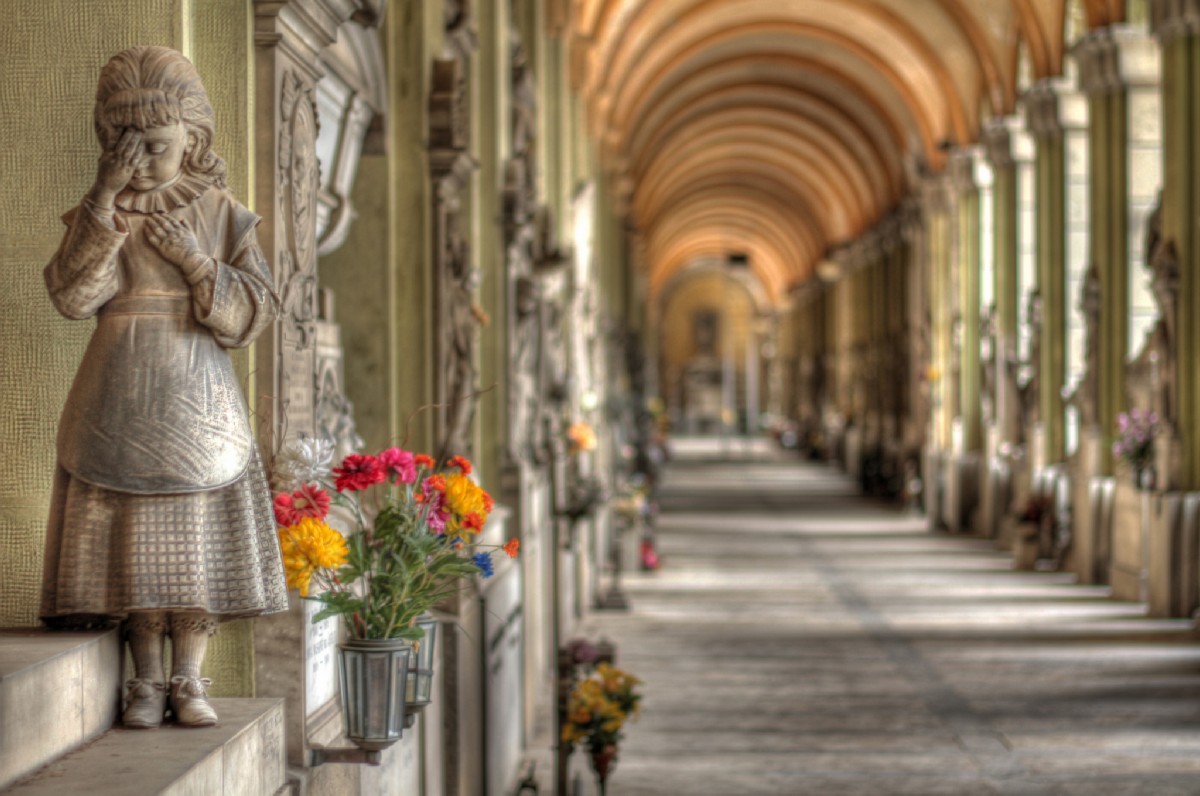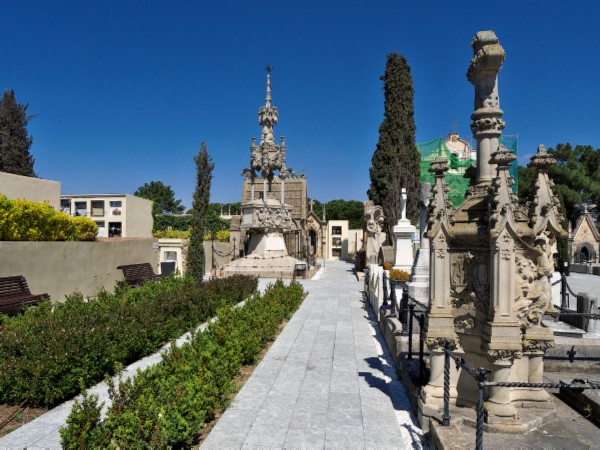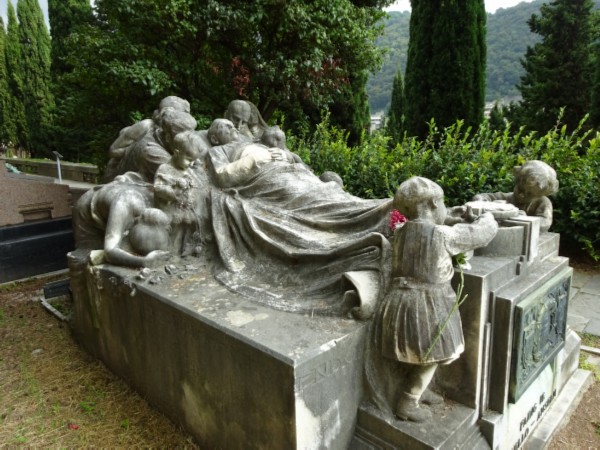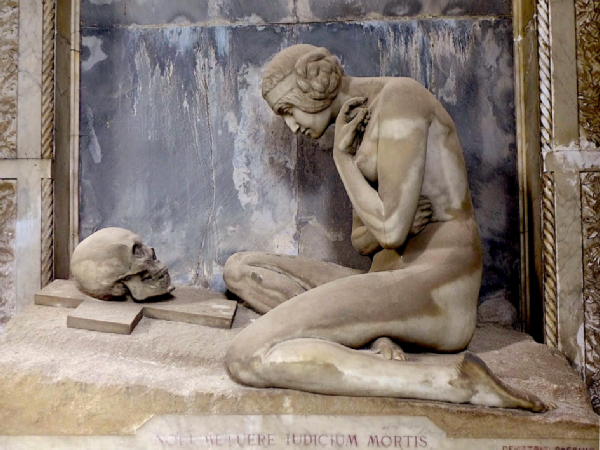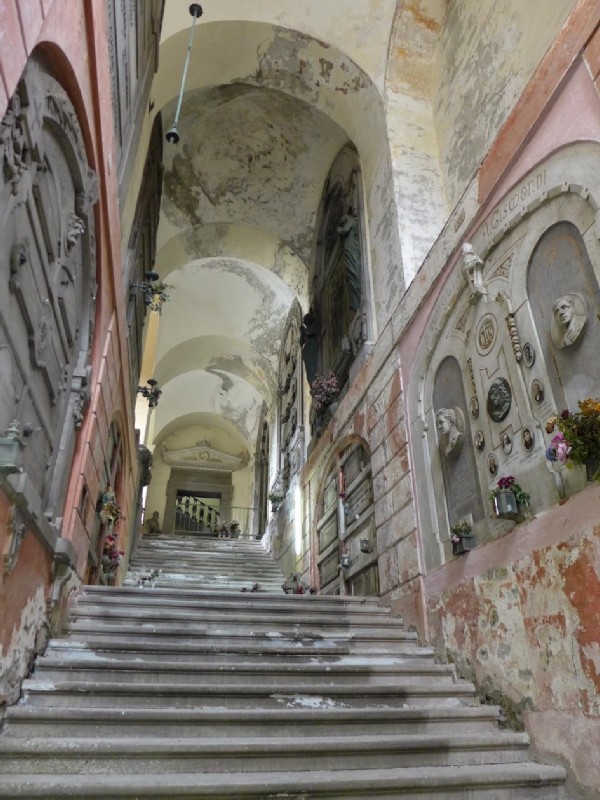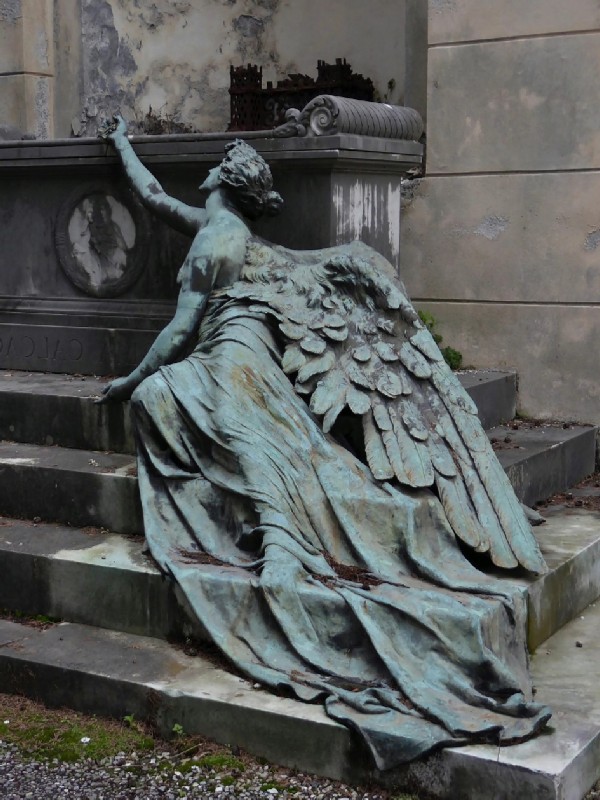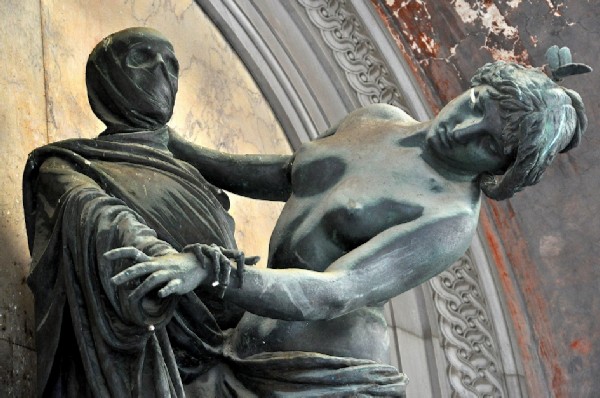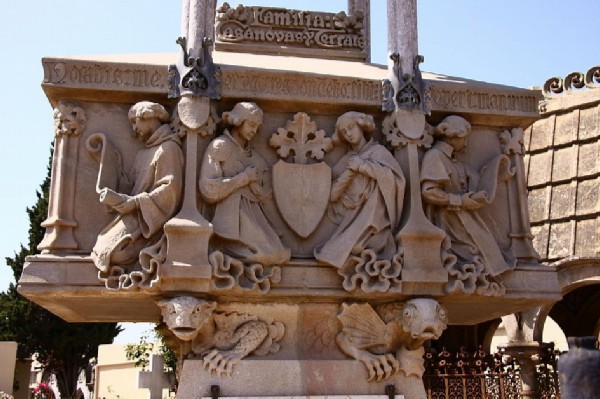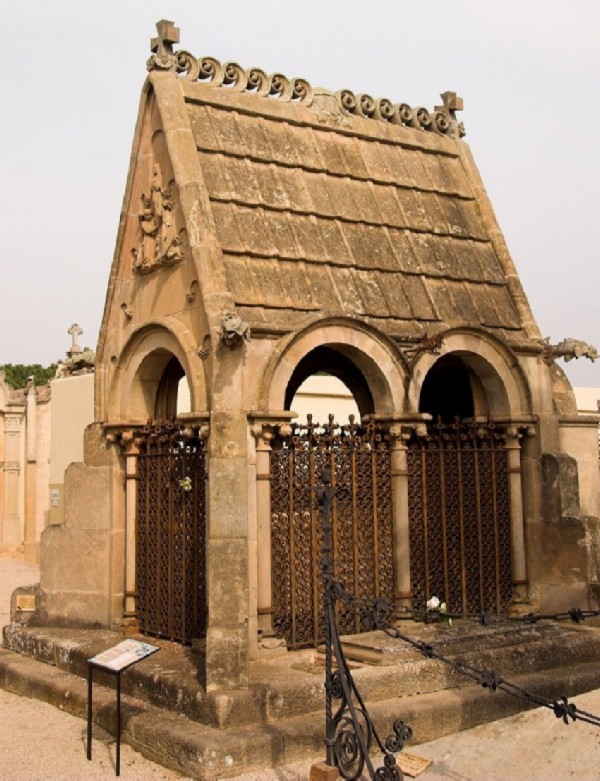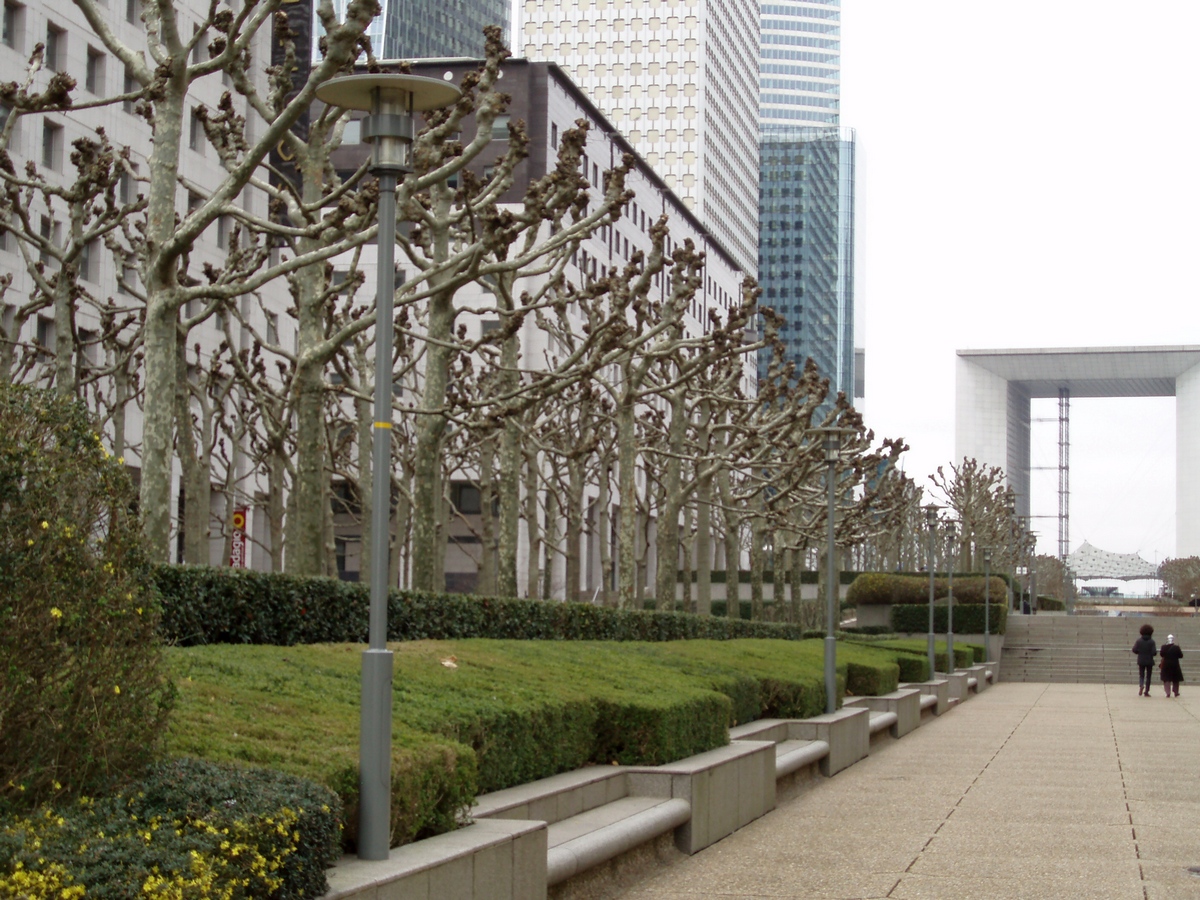Graveyard Art
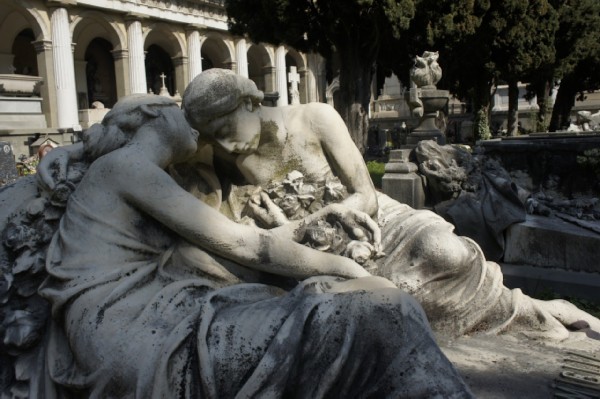
Graveyard Art brings a person closer to two eternal concepts at the same time – to art itself, in this case expressed mainly by sculpture, and to death.
A person “came” to art in a cemetery thanks to a constant desire to exalt himself even after death. It would seem that a small stone slab with the name of the deceased is enough and that the path to the grave is not overgrown with weeds, but no. It is absolutely necessary to build a monumental structure, visible to everyone entering the territory of the dead. At different times, famous sculptors and little-known craftsmen worked on the creation of highly artistic tombstones for celebrities, aristocrats, priests, artists and the military. Sometimes for ordinary people.
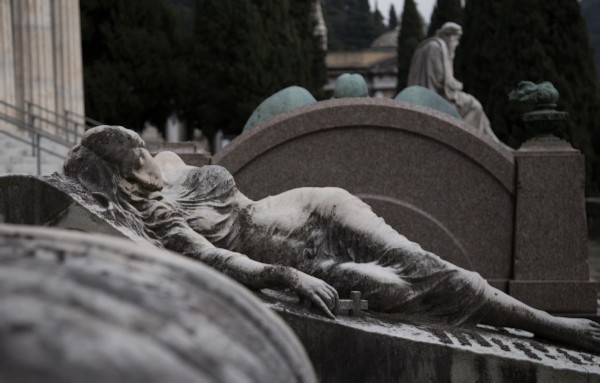
Staglieno, Graveyard Art
The Staglieno cemetery (Cimitero monumentale di Staglieno) is full of works of art. Located on the outskirts of Genoa, this place is famous for its realist and academic marble tombstones, made by the most prominent sculptors of the 19th century. The idea to found a new cemetery came to the local authorities in 1804, when, by order of Napoleon, all burials were removed outside the city walls. The project was developed by Carlo Barabino, the city architect of Genoa. And in 1851 they opened Staglieno, which was originally designed for 60,000 graves.

The Genoese elite seemed to be competing, trying to perpetuate the memory of deceased loved ones in monumental tombstones. Each new funeral became a pretext “for the construction of sarcophagi and statues.”
In Staglieno, the national hero of Italy, Giuseppe Mazzini, is buried, for whom a whole mausoleum was erected. Paolo Giacometti, Michele Novaro, Constance Lloyd (wife of Oscar Wilde) and many others found their last refuge here. Walking through the cemetery, you can find the work of Santo Varni (Santo Varni), Leonardo Bistolfi (Leonardo Bistolfi), Giulio Monteverde (Giulio Monteverde).
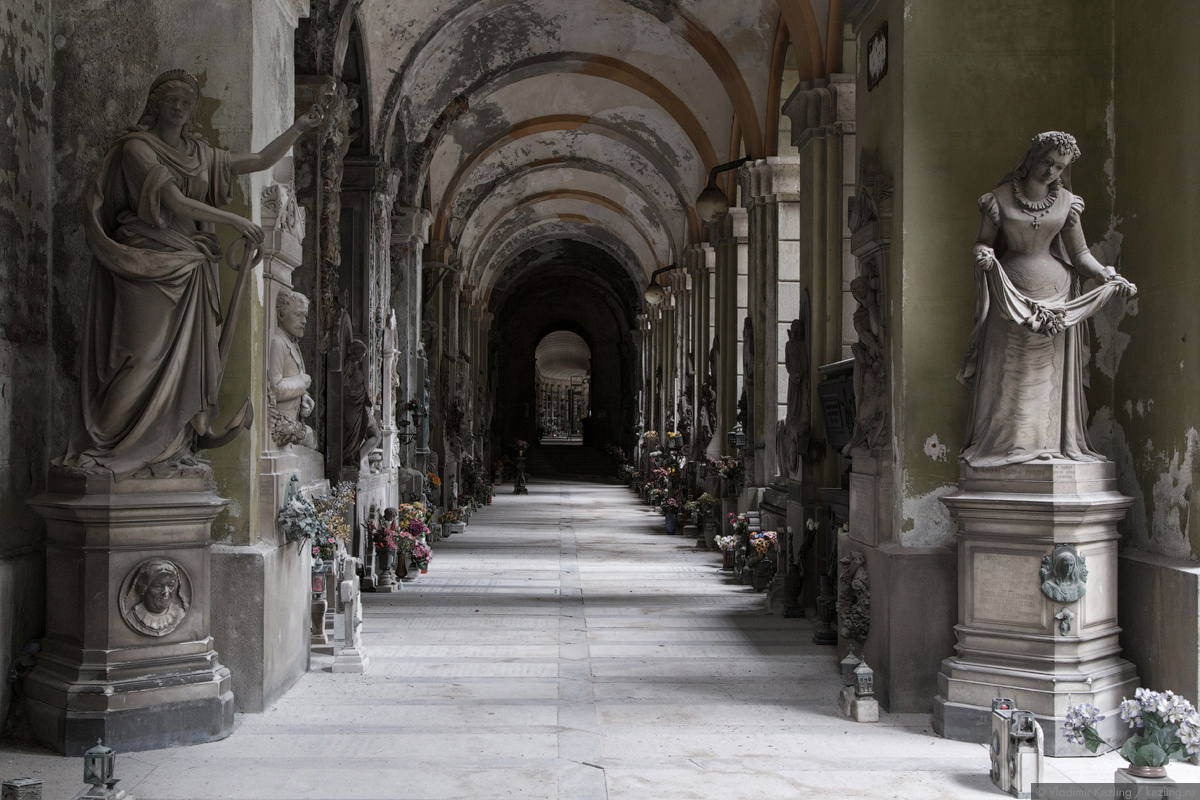
Modernism in Lloret de Mar (Modernist Cemetery Lloret de Mar)
At the end of the XIX century in the Catalan town of Lloret de Mar (Lloret de Mar) opened a new cemetery, which was later called “modernist”. Almost all tombstones are made in the Art Nouveau style, which was fashionable at the beginning of the 20th century, and it was during this period that most of the burials took place here. It is generally accepted that cementiri modernista is the heritage of the “Indians”. This was the name given to local wealthy residents who gained wealth on earnings in the West Indies or Cuba. The mausoleums and tombstones of the cemetery were created by famous Spanish architects and sculptors, and even the students of Gaudi (Gaudí) managed to take part.

